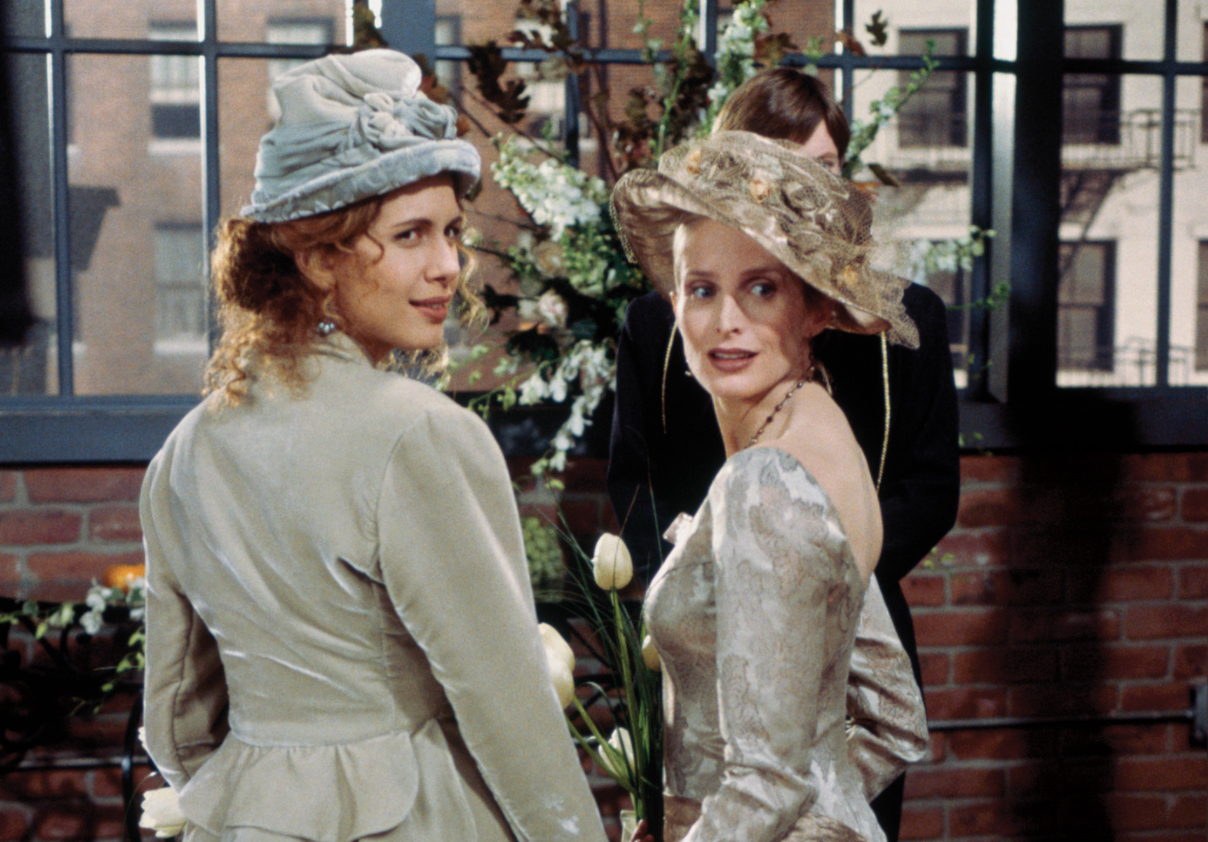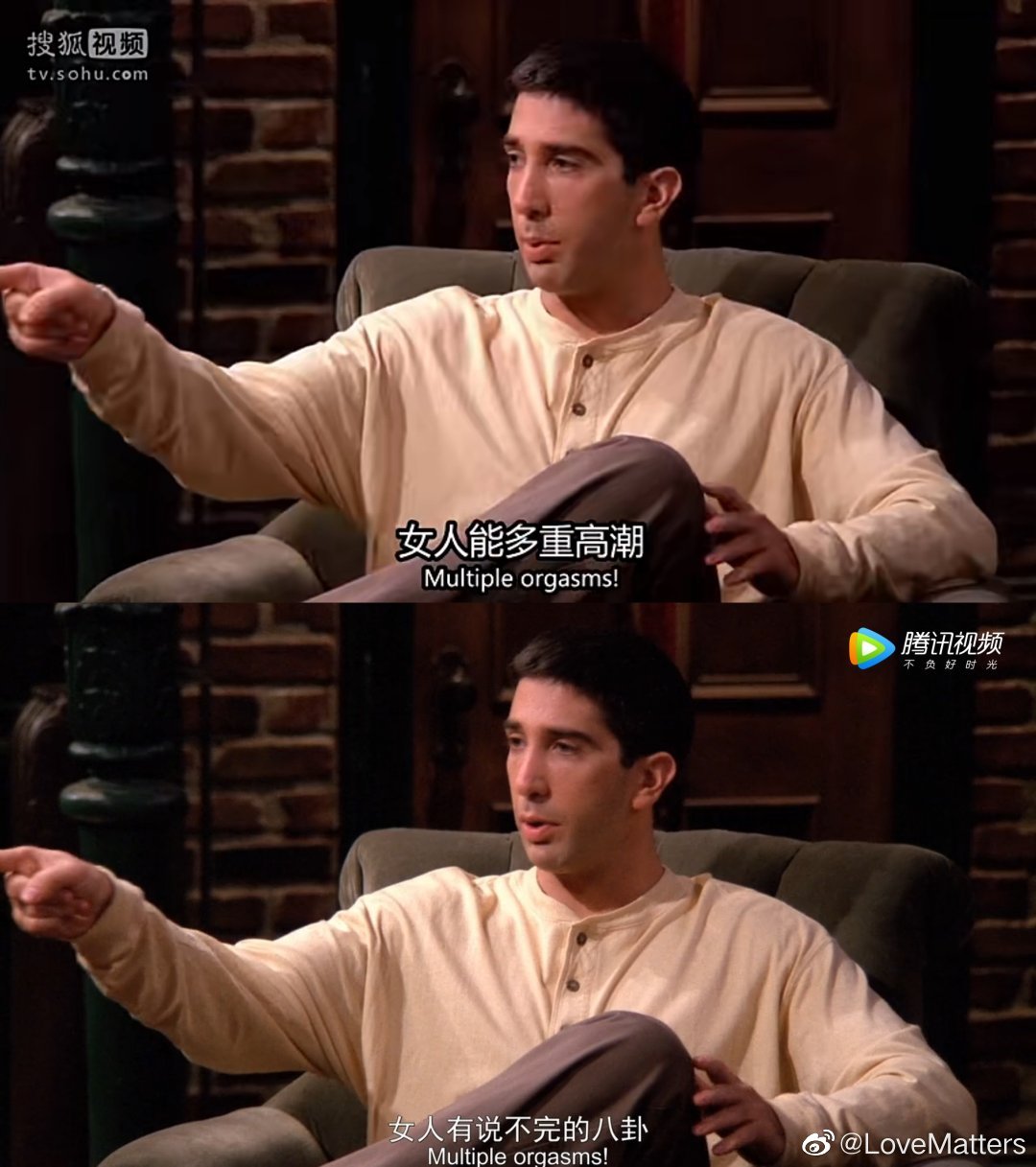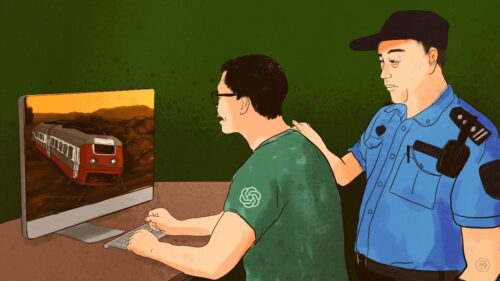‘We’re going backward’: Chinese viewers upset by censorship of LGBTQ content in ‘Friends’
China’s media nannies have censored ‘Friends,’ even though the classic American sitcom, much loved in China, used to be available in all its unbowdlerized glory.

To say that the U.S. sitcom Friends is one of the most beloved foreign television shows in China would be an understatement. Since its original run, from 1994 to 2004, the series has not only entertained a generation of Chinese viewers, but also inspired its learning of the English language and influenced its understanding of American culture. Last year, when a reunion special of the show aired, it prompted watching parties, emotional essays, and trending hashtags on Chinese social media.
So naturally, when a re-release of the original series hit Chinese streaming services last Friday, it was a gigantic deal for Chinese fans of the popular sitcom. But their initial excitement was quickly snuffed out when they discovered that the show wasn’t exactly what they remembered.
In the latest Chinese version, storylines and scenes that depict anything diverging from heterosexuality have been cut out. The biggest change is the complete erasure of the character Ross’s ex-wife, Carol Willick, who divorces him after coming out as a lesbian.
In the first episode, when Ross (David Schwimmer) informs his parents about his split from Carol, the whole conversation in which he explains the reason is removed. Instead, the scene directly cuts to his parents’ shocked faces after he announces the divorce. Although one mention of the word lesbian was left untouched in the second episode, the Chinese subtitles blatantly omitted it in translation. Later on the show, a scene where Chandler (Matthew Perry) and Joey (Matt LeBlanc), both male, share a New Year’s Eve kiss is scrubbed.

Intentional mistranslations are also applied to conversations containing mildly suggestive references. When Joey suggests that a friend go to a strip club to get over his recent breakup, his advice is translated in Chinese subtitles as “going out to have fun.” In another instance, a reference to women experiencing “multiple orgasms” is turned into a comment about women “having endless gossip.”
Chinese viewers who had previously watched the series were quick to notice the alterations, and they wasted no time in expressing their outrage on social media. On Weibo, the hashtag “Friends is censored” #老友记删减# was the most trending topic on Friday night, with more than 54 million views. By Saturday morning, however, it appeared that the term had also been censored. Attempts to search for the hashtag now results in a message that reads, “This topic is not shown according to relevant laws and regulations.”
This didn’t stop angry fans from airing their grievances, though. “I’m speechless. The editing has made the pace of the story and its plotlines completely messed up,” a Weibo user wrote (in Chinese). Another person commented, “Many foreign shows feel obligated to include LGBTQ characters due to the LGBTQ rights movement in recent years, but our country is still censoring a TV show that was filmed almost 30 years ago. We are going backward.”
China news, weekly.
Sign up for The China Project’s weekly newsletter, our free roundup of the most important China stories.
Back in 2012, when Friends made its debut on Chinese streaming platforms Sohu Video and iQiyi, the show was left uncut, and this untouched version was available to watch until its streaming agreement ended in 2013. Seeing the revival of the sitcom’s popularity in the aftermath of the reunion special, a group of Chinese streaming services decided to purchase its broadcasting rights together and scheduled the date for the re-release on February 11.
Censorship of LGBTQ content in mainstream media is far from a new phenomenon in China. Although China decriminalized homosexuality in 1997, and officially removed it from its list of mental illnesses in 2001, authorities still deem LGBTQ content inappropriate for the public to consume, and block depictions of same-sex relationships on both the big and small screen.
Guidelines issued in 2015 by Chinese censors on “vulgar, immoral and unhealthy content” banned “abnormal sexual relationships and behaviors,” including same-sex relationships, in films and television. The same year, China ordered all foreign TV series to be registered and obtain a license before being broadcast in the country. As a result, when Bohemian Rhapsody, the smash-hit biopic of Queen frontman Freddie Mercury, hit Chinese theaters in 2018, moviegoers saw a sterilized version of it that cut out scenes and references to Freddie Mercury’s sexuality and AIDS diagnosis.
China has a stringent censorship system, and LGBTQ content is only one of the many themes that are routinely vetoed by Chinese censors. In fact, this is not the first time that Friends has faced the ax of China’s censorship. When the celebrity-packed Friends reunion landed in China last year, the country’s top streaming platforms censored around six minutes of material from the special episode, deleting footage of gay fans and cameos featuring artists like American superstar Lady Gaga and Canadian singer-songwriter Justin Bieber, who had at some point in their careers offended the central government.
Recently, China altered the iconic, destructive ending of David Fincher’s beloved cult classic Fight Club, replacing it with a version where the establishment wins. The film was later restored to its original state after complaints.






